It is billed as a major speech by French President Emanuel Macron. The press says Macron is proposing a "new world order." Actually, Macron is posing as the "new" leader of Europe and he is calling for strengthening Europe economically, technological, ideologically and militarily. He was speaking at the Sant'Egidio International Meeting for Peace, held in Paris (22 to 24 September). Macron spoke on September 22. The ÉLYSÉE, France's Presidential Palace, has released the text of the speech in English, billed as the "Europe Speech."

The speech spends considerable time on Macron’s desire to see Europe strengthen its defense capabilities, but he does not deal with the significant depletion of war stockpiles in Europe because mostly they have been sent to Ukraine. Nor does he really address the tremendous duplication of defense production in European countries. Attempts to consolidate Europe's defense industries have only been modestly successful at best. In critical areas, such as air defenses, Europe supports a number of domestically built systems (such as IRIS-T, SAMP/T, Aspide, Aster, NSAMS), but many have US content including US interceptor missiles) Added to that are US (e.g., Patriot) and Israeli systems (e.g., Arrow) in use in Europe. Macron wants to see a big increase in Europe's air defense capabilities, but these systems are expensive and there is no Europe-wide agreement on standardizing air defense products or even integrating them. As the Israelis have demonstrated, to achieve a level of security commensurate with growing threats, it is important to integrate air defenses and operate consolidated command and control systems buttressed by artificial intelligence decision making loops.
Nor does Macron address European troops strengths, although he argues for Europe replacing the US in terms of responsibility for defending Europe. Compared to Russia, Europe's armies are generally small. While NATO exercises are attempting to improve combat deployment and coordination, there are major obstacles to overcome, including standardizing equipment (including ammunition) and communications. Likewise getting troops, equipment and supplies to the battlefield remains a significant logistical challenge. The only troop reference in Macron's speech is his proposal to restart efforts to put together a 5,000-man rapid reaction force, but its actual purpose is murky.
Meanwhile a US Army War College study proposes that the US shift from rotational brigades in Europe to permanent armored combat brigades based in Europe that, the study suggests, will permit Europe to send more of its arsenals to Ukraine. In other words, the War College wants the US to relieve Europe of its ground forces responsibility for Europe’s defense.
Macron wants Europe to be a technological leader. He mentions energy (hydrogen), battery technology, semiconductors and artificial intelligence as well as stimulating investment. Unfortunately Europe is falling behind in advanced technology, lacks a "start up" investment mentality, and defers almost everything to the EU, including investment. Europe's economy was underwritten for many years by cheap energy from Russia and the Middle East and nuclear power plants. Cheap energy (oil and natural gas) from Russia has mostly ended, meaning that substitutes either come from the US (in the form of LNG) or from alternatives ("green" energy sources). While France has held onto its nuclear, Germany and Italy have shut down nuclear power plants and stopped using coal. The energy component of European products is now far more expensive, making already over-priced items (commercial and defense) now even more costly. There is nothing beyond ideology in Macron's proposals.
Macron's bid for European leadership will not be successful, even if he stays in office. While European countries will spend more on defense, all of them are playing catch-up ball technologically and industrially, and most of them have to replace weapons now in desperate short supply. Talk about Europe building sixth generation fighter airplanes or new generations of tanks, will just eat up critical budgets, just as Britain's two new aircraft carriers hide the fact that its army is weak and badly undersupplied. Without the US, NATO would probably disband and the European "experiment" (if one can call it that, even though it is mostly wishful thinking) will end.
The speech proposed "rethinking" relations with Russia, but only after Ukraine wins its war with Russia. Then, according to Macron, Ukraine will become a member of the EU along with Moldova, and other western Balkan countries will also be brought into the fold. (The West Balkans consists of Albania, Bosnia, Herzegovina, Montenegro, Kosovo, North Macedonia and Serbia.) Macron omitted calling for Ukraine’s NATO membership.
Aside from that, there is not a word about a negotiated settlement of the Ukraine conflict, and no opening of any kind regarding Russia. In short, although the Conference is billed as “Imagine Peace” (Imaginer La Paix), while Macron says he is “fighting for peace” his speech is about war preparations.
Macron has just appointed a new conservative cabinet that has touched off a major political controversy in France. Most of the issues touch on social issues, not the war in Ukraine or other economic, industrial or military issues. Like the United States the political struggle in France is over issues such as immigration, assisted reproductive technology (ART), abortion rights and LGBT rights, for example allowing same sex couples and single women to access ART. One of the convergent issues is granting free health care to undocumented immigrants. Macron could face impeachment and disruption in parliament and on the streets.
The two great powers in Europe, Germany (for economic reasons) and France, because it has nuclear weapons, are experiencing economic and political crises. Both current leaders, Macron and Scholz, could easily lose their jobs unless they can halt the economic downward spiral in their respective countries and solidify their political leadership at home. In his speech Macron suggested that France's nuclear weapons could form part of a new European security order. Prior to Macron's suggestion, France had consistently maintained that it possessed a nuclear deterrent for France’s protection. Its nuclear weapons were always held to be outside of any European framework and outside of NATO. While the US does share some nuclear responsibilities with its European partners, the US maintains control of all its nuclear warheads and bombs.
France is planning to increase its military budget, although it still will remain rather modest. According to the plan put forward by Macron, the French defense budget will increase by €3.1 billion in the 2024 budget; by €3 billion in 2025, 2026, and 2027, and by €4.3 billion in 2028, 2029, and 2030. By 2030, France’s annual defense budget is expected to top €60 billion; nearly double the amount allocated in 2017 of €32 billion. The Germans claim their defense budget will rise to €80 billion by 2028, but this is unlikely given Germany's economic problems and the fact the country is now in a recession. Currently the German defense budget is €59.89 billion.
For comparison purposes, the US all-in defense budget (including nuclear) is $883.7 billion.
Macron does not deal with the significant depletion of war stockpiles in Europe. Nor does he really address the tremendous duplication of defense production in European countries. Attempts to consolidate Europe's defense industries have only been modestly successful at best. In critical areas, such as air defenses, Europe supports a number of domestically built systems (such as IRIS-T, SAMP/T, Aspide, Aster, NSAMS), but many have US content including US interceptor missiles) Added to that are US (e.g., Patriot) and Israeli systems (e.g., Arrow) in use in Europe. Macron wants to see a big increase in Europe's air defense capabilities, but these systems are expensive and there is no Europe-wide agreement on standardizing air defense products or even integrating them. As the Israelis have demonstrated, to achieve a level of security commensurate with growing threats, it is important to integrate air defenses and operate consolidated command and control systems buttressed by artificial intelligence decision making loops.
Macron's bid for European leadership will not be successful, even if he stays in office. While European countries will spend more on defense, all of them are playing catch-up ball technologically and industrially, and most of them have to replace weapons now in desperate short supply. Talk about Europe building sixth generation fighter airplanes or new generations of tanks, will just eat up critical budgets, just as Britain's two new aircraft carriers hide the fact that its army is weak and badly undersupplied. Without the US, NATO would probably disband and the European "experiment" (if one can call it that, even though it is mostly wishful thinking) will end.
Macron's bid for European leadership will not be successful, even if he stays in office. While European countries will spend more on defense, all of them are playing catch-up ball technologically and industrially, and most of them have to replace weapons now in desperate short supply. Talk about Europe building sixth generation fighter airplanes or new generations of tanks, will just eat up critical budgets, just as Britain's two new aircraft carriers hide the fact that its army is weak and badly undersupplied. Without the US, NATO would probably disband and the European "experiment" (if one can call it that, even though it is mostly wishful thinking) will end.




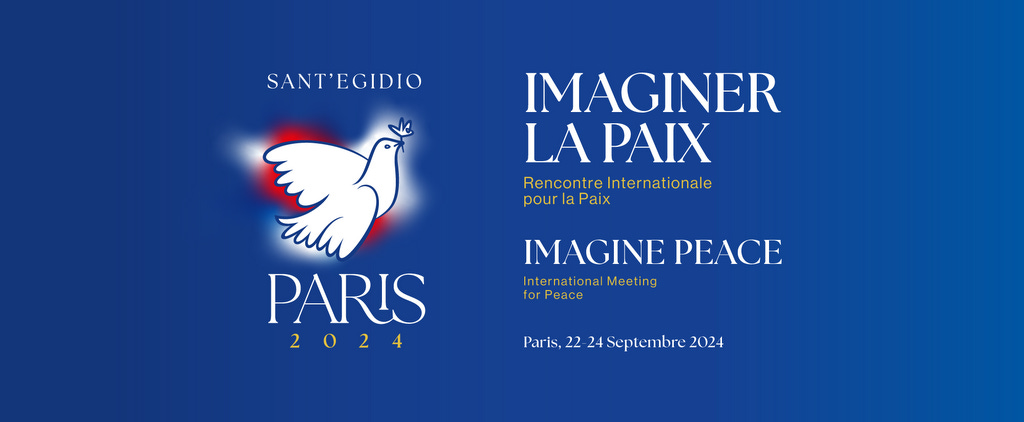





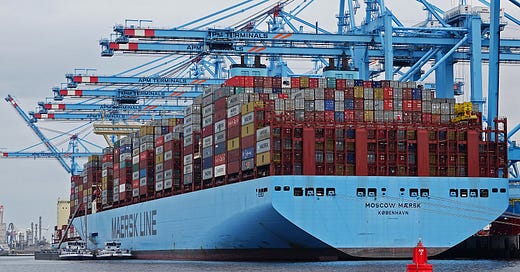

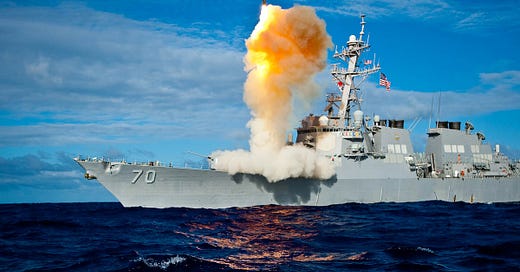

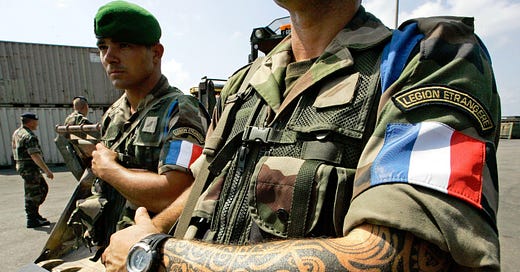

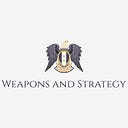
The end of NATO and the EU would be a good thing.
To convince people you will improve things, it usually helps to demonstrate that you have identified the problems, the solutions, have the financing available, and that other stakeholders are supportive.
Western Pols are polished in the promising and little else, and have a tenuous demonstrated grasp of reality, as your coverage of Macron shows.
Macron's speech and the idea of Project 2030 (predicting war with Russia after the current decade) appears to illustrate that the "believers" see no current danger from Russia, no matter whether and to the extent they (and NATO) cross Russian Red Lines.
It must be comforting to go to bed each night without any worry that WW3 is right around the corner.
Is it ignorance, or denial, that is the ultimate bliss?
BTW, I think you (accidentally) repeated part of the text more than once (or my computer is on the fritz)..